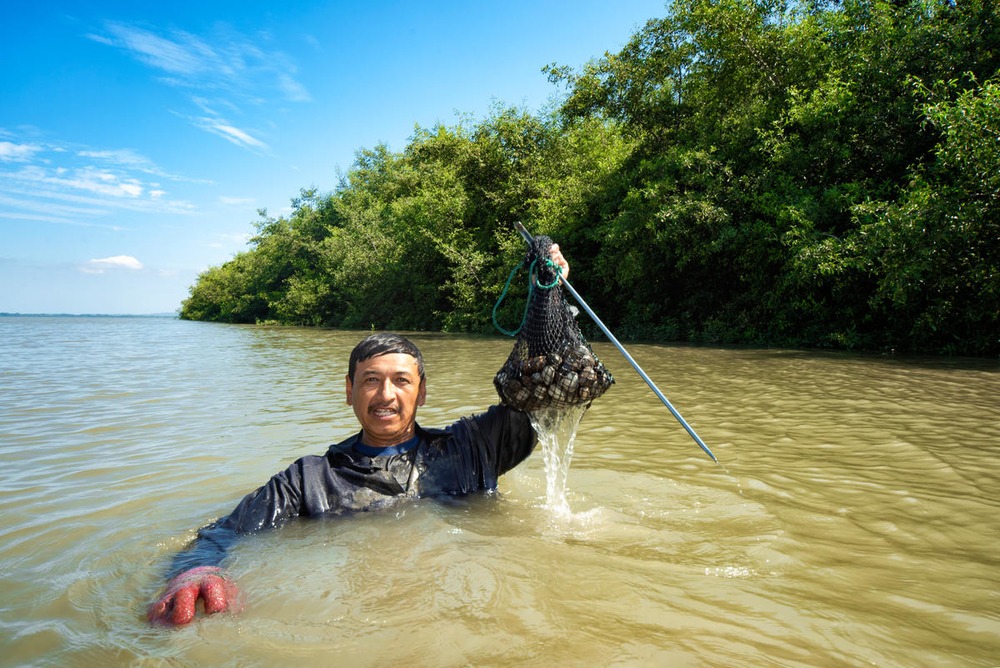Climate Report Warns of 'Unprecedented' Change to Nature & Communities
Scientists highlight blue carbon, mangrove restoration as nature-based solutions
The Intergovernmental Panel on Climate Change (IPCC) Special Report on the Ocean and Cryosphere in a Changing Climate finds that the ocean is experiencing dramatic change, and mangroves are both at-risk and part of the solution. According to the panel of more than 100 scientists from more than 30 countries:
“Coastal ecosystems are affected by ocean warming, including intensified marine heatwaves, acidification, loss of oxygen, salinity intrusion and sea level rise, in combination with adverse effects from human activities on ocean and land (high confidence). Impacts are already observed on habitat area and biodiversity, as well as ecosystem functioning and services (high confidence)”
“Changes in the ocean have impacted marine ecosystems and ecosystem services with regionally diverse outcomes, challenging their governance (high confidence). Both positive and negative impacts result for food security through fisheries (medium confidence), local cultures and livelihoods (medium confidence), and tourism and recreation (medium confidence). The impacts on ecosystem services have negative consequences for health and well-being (medium confidence), and for Indigenous peoples and local communities dependent on fisheries (high confidence)”

Clams fisherman in the mangroves in Isla Escalante, Ecuador. © Antonio Busiello / WWF-US
“Coastal communities are exposed to multiple climate-related hazards, including tropical cyclones, extreme sea levels and flooding, marine heatwaves, sea ice loss, and permafrost thaw (high confidence). A diversity of responses has been implemented worldwide, mostly after extreme events, but also some in anticipation of future sea level rise, e.g., in the case of large infrastructure”
“A decrease in global biomass of marine animal communities, their production, and fisheries catch potential, and a shift in species composition are projected over the 21st century in ocean ecosystems from the surface to the deep seafloor under all emission scenarios (medium confidence).”
“Risks of severe impacts on biodiversity, structure and function of coastal ecosystems are projected to be higher for elevated temperatures under high compared to low emissions scenarios in the 21st century and beyond. Projected ecosystem responses include losses of species habitat and diversity, and degradation of ecosystem functions. The capacity of organisms and ecosystems to adjust and adapt is higher at lower emissions scenarios (high confidence). For sensitive ecosystems such as seagrass meadows and kelp forests, high risks are projected if global warming exceeds 2°C above pre-industrial temperature, combined with other climate-related hazards (high confidence). Warm water corals are at high risk already and are projected to transition to very high risk even if global warming is limited to 1.5°C (very high confidence).”
The report also outlines how the world can respond to the findings.
“Key enablers for implementing effective responses to climate-related changes in the ocean and cryosphere include intensifying cooperation and coordination among governing authorities across spatial scales and planning horizons. Education and climate literacy, monitoring and forecasting, use of all available knowledge sources, sharing of data, information and knowledge, finance, addressing social vulnerability and equity, and institutional support are also essential. Such investments enable capacity- building, social learning, and participation in context-specific adaptation, as well as the negotiation of trade-offs and realisation of co-benefits in reducing short-term risks and building long-term resilience and sustainability. (high confidence)”
Access the complete Special Report on the Ocean and Cryosphere in a Changing Climate here.